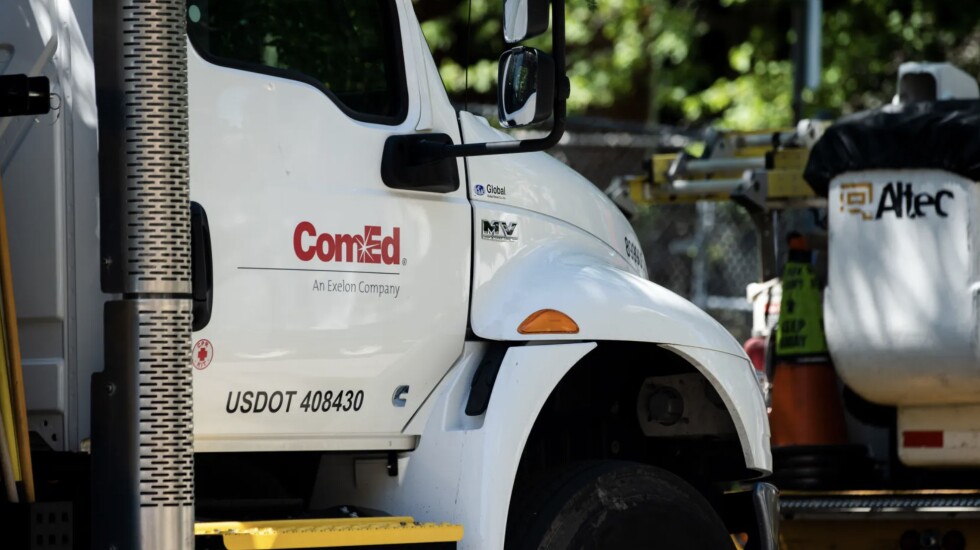
Later this week, utility regulators at the Illinois Commerce Commission will rule on two massive rate hike proposals from electric utilities ComEd and Ameren. While the size of the rate hikes will appropriately dominate headlines, the commission is also making important decisions that will shape the clean energy transition in Illinois.
The clean energy transition — already underway and set to accelerate in the coming decade — is transforming the way we generate, deliver and use energy. It will take decades and cost a great deal but, done right, will produce larger health, environmental and economic benefits.
For a successful transition, we must spend wisely while maximizing benefits, and ensure those benefits predominantly flow to the public. That won’t happen if utilities are allowed to use their incumbent status to spend wastefully and generate excessive profits. Watchdogging the utilities is the crucial task before the five-person Illinois Commerce Commission, recently overhauled by Gov. J.B. Pritzker.
The new commission is off to a strong start. The gas utilities proposed spending as if Illinois would remain as reliant on burning fossil fuels in our homes in 60 years as we are now. Those investments would drive up utility bills and profits, but not provide corresponding customer benefits, especially if the public is left to pay for gas systems decades after no longer using them.
The commission rightly directed a different approach. As Chairman Doug Scott said, “As the State embarks on a journey toward a 100% clean energy economy, the gas system’s operations will not continue to exist in its current form.”
When it comes to the electric utilities, the dynamics are different, but the underlying scuffle over who benefits most from the clean energy transition remains. Unlike the gas system, which is inexorably tied to burning fossil fuels that harm our health and exacerbate global warming, Illinois is on a path to generate 100% of our electricity from renewable sources.
We are also expanding how we use electricity: to power cars and e-bikes, to heat our homes, and more. As Illinois reduces its reliance on fossil fuels like methane gas and the gas utilities that deliver it, it will rely more on electricity and electric utilities.
Funding already dedicated to clean energy
Unfortunately, electric utilities are also working to game the clean energy transition to earn excessive profits. ComEd and Ameren argue the commission should approve unprecedented spending over the next four years, above and beyond the already elevated spending used to build the “smart grid” and improve reliability under the “formula rate” process passed during ComEd’s bribery scheme.
While this spending would raise our bills and pad utility profits, the utilities contend it must be done to achieve the clean energy goals Illinois adopted in the Climate and Equitable Jobs Act.
The utilities’ argument overlooks that CEJA has specific goals and that customers are already paying to achieve those goals. There are dedicated funding sources for renewable energy development, subsidizing Illinois’ nuclear power plants, expanding energy efficiency programs, spurring electric vehicle adoption, and more. While the electrical grid requires investment to adapt to a 100% clean energy economy, current spending levels are more than adequate to maintain reliability as more renewable energy and electric vehicles are added to the grid over the next four years.
By spending too much money too quickly, building unnecessary infrastructure or infrastructure years before it is needed, ComEd and Ameren are asking us to pay more to get less. As they did with the gas utilities, the ICC should right-size utility spending and limit its impact on customer bills.
The utilities won’t give up without a fight. When the commission dared defy ComEd a decade ago, the utility went to the Legislature to overturn specific ICC accounting decisions, delivering hundreds of millions in additional profits to ComEd.
Already, Peoples Gas and its allies have launched an attack on the commission’s November decision, suggesting the Legislature intervene again and threatening the pending confirmation of Pritzker’s three most recent ICC appointments. The threat of these actions alone is designed to pressure the commission to take a less vigorous approach defending utility customers, the public ,and a successful clean energy transition.
The five commissioners should not waver, and we as customers and citizens should support them. The fierce reaction from utilities and their allies indicates not that the ICC has “overreached” but that it is doing its job, aggressively promoting the public interest and maximizing the public benefits of the clean energy transition.
Abe Scarr is the director of Illinois Public Interest Research Group.
The Sun-Times welcomes letters to the editor and op-eds. Check out our guidelines.
The views and opinions expressed by contributors are their own and do not necessarily reflect those of the Chicago Sun-Times or any of its affiliates.







